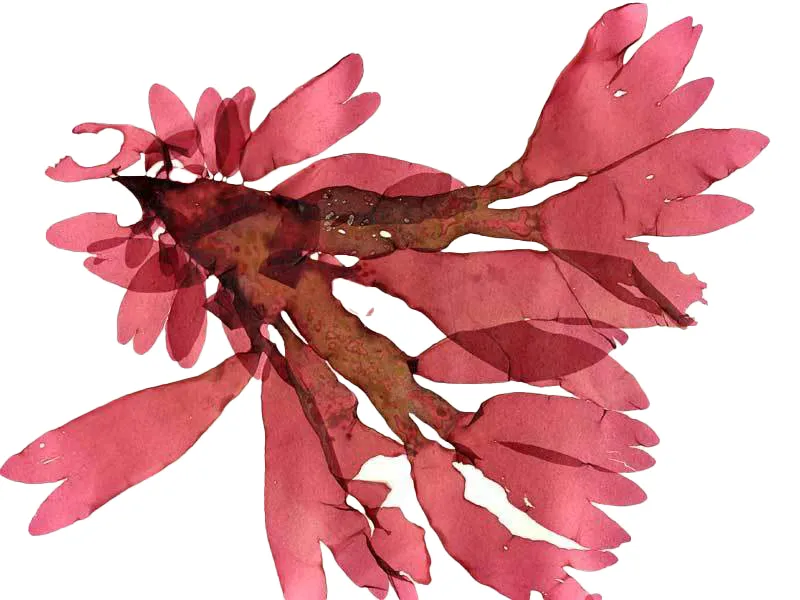Storage: Dark and dry place in room temperature.
Packaging formats: 1kg, 2,5kg and unpacked (>5 kg).


Latin name: Palmaria Palmata
English trade name: Dulse
Swedish trade name: Söl
Origin: EU
Certificates: Organic
Dulse, also known as Palmaria palmata, is a red seaweed with a unique and vibrant appearance. It offers a savory, umami flavor and a slightly chewy texture, making it a popular addition to various dishes, such as soups, salads, and even as a crispy snack when pan-fried. Besides its culinary appeal, dulse is a nutritional powerhouse, rich in essential minerals, vitamins, and plant-based protein. Its distinctive taste and health benefits have made dulse a beloved component of both traditional and contemporary cuisines, and it continues to gain recognition for its unique contribution to the world of seaweed-based foods.
Storage: Dark and dry place in room temperature.
Packaging formats: 1kg, 2,5kg and unpacked (>5 kg).
Per 100 grams
Energy: 915 kJ
Energy: 219 kcal
Fat: 0.5 g
– saturated fat: 0.31 g
Carbohydrates: 17.6 g
– sugars: <0.5 g Salt: 4.7 g
We are at the final stages of growing palmaria at large scale in the ocean. At the moment, we provide organic palmaria sustainably farmed in the EU.
Dulse (Palmaria palmata) is primarily found in the cold waters of the North Atlantic and North Pacific Oceans. It grows on rocky shores from the intertidal zone up to depths where light penetration allows photosynthesis.
Dulse itself is unlikely to cause high blood pressure when consumed in moderation as part of a balanced diet. In fact, it contains potassium, which can help manage blood pressure.
Eating dulse offers several health benefits due to its rich nutritional profile. It’s a good source of vitamins (like B vitamins, vitamin C, and vitamin A), minerals (including iodine, potassium, and iron), antioxidants, and dietary fiber. These nutrients support thyroid function, help regulate metabolism, contribute to bone health, and may protect against free radicals. Additionally, the protein content in dulse includes essential amino acids, making it a valuable protein source for vegetarians and vegans
Dulse is used as a food item, particularly in snacks and as a seasoning due to its savory, umami flavor. It’s also valued for its nutritional content, containing vitamins, minerals, and protein. Beyond culinary uses, dulse is explored for potential health benefits and in cosmetic products.
It has a salty and briny taste, with a subtle smoky and nutty undertone. The texture of Dulse can vary depending on how it’s prepared. When it’s fresh, it has a softer, slightly chewy texture, but when dried, it becomes crisp and can be used as a snack or a seasoning. It is also called “the bacon from the sea”.
No, dulse (Palmaria palmata) is different from nori (typically Porphyra or Pyropia species). While both are edible seaweeds, they differ in texture, taste, and appearance. Dulse is softer and chewier, with a more complex flavor, whereas nori, commonly used in sushi, is usually crispy with a milder taste.